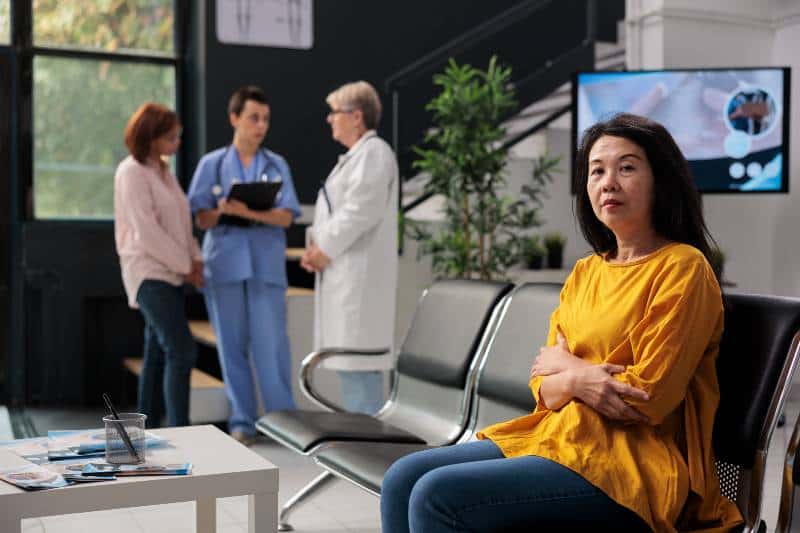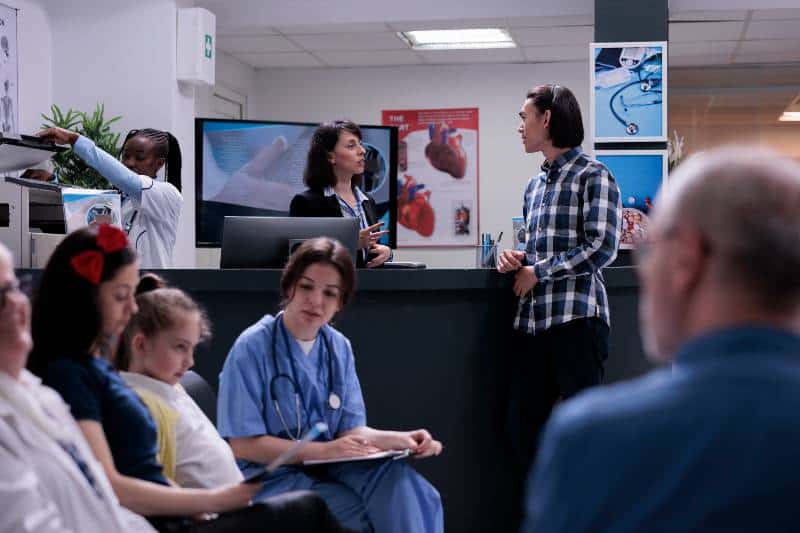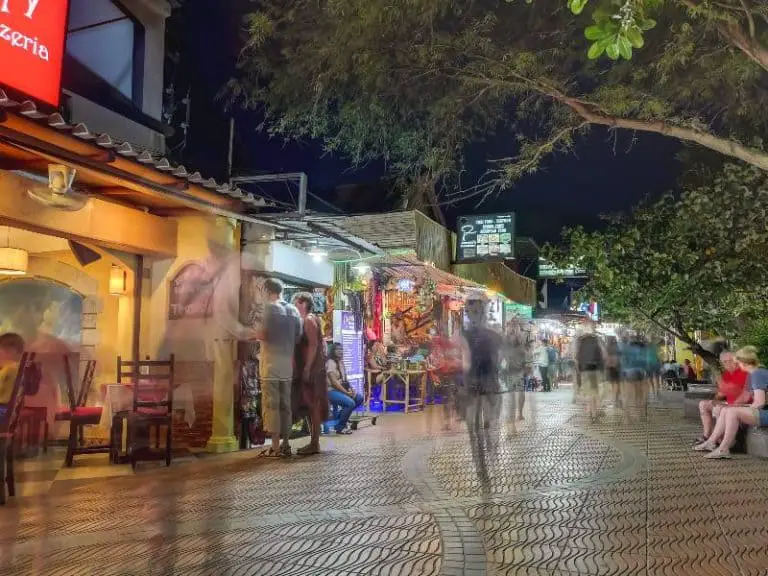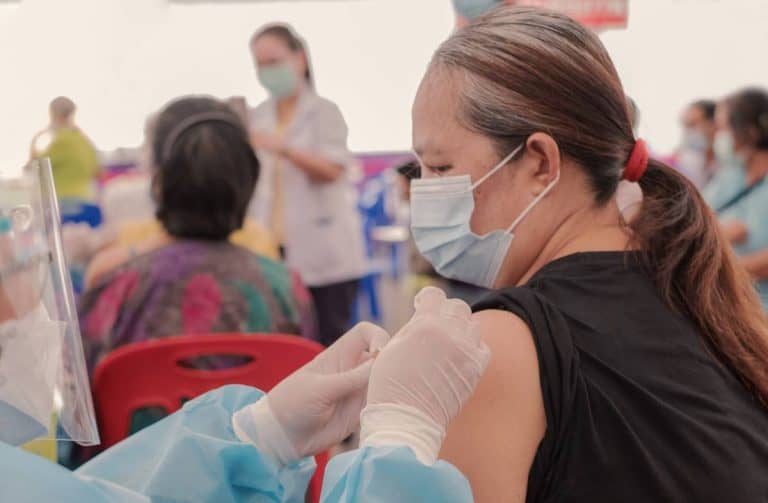16 Best Hospitals in Thailand for Expats
If you are an ex-pat living in Thailand, you may be wondering which hospitals are the best to go to in case of an emergency. In this blog post, we will list 16 of the best hospitals in Thailand for ex-pats. These hospitals offer excellent medical care and are staffed by skilled doctors and nurses. They also have state-of-the-art equipment and facilities. So if you ever need to go to the hospital while living in Thailand, these are the places you want to be!
Thailand is a popular destination for medical tourism, and many people who travel to Thailand are seeking the best hospitals in Thailand. Thailand has many excellent hospitals and clinics, which provide excellent medical care at affordable prices.
Key Takeaways
- There are many hospitals in Thailand that offer excellent care for ex-pats.
- Thailand is one of the best countries in the world for ex-pats. It offers a high quality of life, with a warm climate, friendly locals, and great healthcare.
- There are lots of best hospitals in Thailand for expats, some of them are Bumrungrad International Hospital, Bangkok International Hospital, and Samitivej Hospital.

How Good Are The Hospitals In Thailand?
Thailand offers a high standard of healthcare, and treatment can be both better and cheaper than in some Western countries. The majority of medical centers are based in larger cities, especially Bangkok.
The Thai healthcare system is divided into public and private facilities, with each catering to different kinds of patients and offering different levels of care. Public hospitals tend to offer basic care at low prices while private hospitals provide more sophisticated treatments at higher prices.
Most hospitals in Thailand have English-speaking staff available around the clock. There are also several international hospitals with English-speaking staff located throughout the country, although these are generally more expensive than local facilities.
The Quality Of Care In Thailand
The Medical Registration Division of the Ministry of Public Health’s Department of Health Service Support regulates private hospitals in Thailand, many accredited by the US-based Joint Commission International (JCI).
As of 2021, Accreditation Canada has accredited 61 hospitals and primary care organizations in Thailand. Of this number 34 are based in Bangkok—the same as Mexico but outnumbered by organizations from Saudi Arabia and the United Arab Emirates.
Joel A Roos, Vice President of International Accreditation, Quality Improvement, and Safety at Partners In Health/PIH Hospitals in Thailand say:
Healthcare organizations in Thailand have aggressively pursued accreditation by the Joint Commission International.
According to Joel A. Roos, vice president of international accreditation at the Joint Commission International (JCI), hospitals in Thailand have a strong desire “to demonstrate that they provide high-quality healthcare”
Healthcare providers in Thailand have aggressively pursued accreditation by The Joint Commission, and the country has one of the highest numbers of JCI-accredited facilities in Asia.
How to Choose The Best Hospital in Thailand For Foreigners
Choosing a hospital in Thailand can be daunting, but you don’t have to do it alone. Here are some things to consider when choosing the best hospital in Thailand:
1. Location: The first thing you’ll want to check is where the hospital is located. Is it near your home? Are there public transportation options nearby? If not, how far is the nearest bus stop or taxi stand? You’ll also want to consider whether or not the hospital has parking facilities for patients and their loved ones.
2. Amenities: Next, check out what amenities are available at the hospital. Does it have wifi? Is there a cafeteria with healthy options? Is there any type of entertainment offered on-site (like a library)? These are all things that add value to your experience as a patient and make your stay more comfortable.
3. Cleanliness: It’s important to be able to trust that your healthcare provider has taken steps toward ensuring cleanliness throughout the facility—from patient rooms to waiting rooms and even bathrooms! Make sure that all surfaces are cleanable (i.e., floors) and disinfected regularly; otherwise, you may run into problems down the line with sanitation issues related
Why Private Healthcare Is Better For Expats In Thailand
Additionally, private hospitals usually have better equipment and English-speaking staff. As a result, waiting times for treatment are considerably reduced in comparison to public hospitals—where overcrowding can sometimes mean it takes weeks or months just to get an appointment.
Finding the Right Doctor at a Hospital in Thailand
Choosing a doctor is an important decision, especially if you’re moving to a new country. When you’re far from home, you want to know that your medical team is going to be able to help you navigate the healthcare system and provide the best possible care.
There are many factors to consider when choosing a doctor in Thailand:
- Do they speak English?
- Are they familiar with your health needs and concerns?
- Can they provide the services that you need?
- How much will it cost?
- What insurance do they accept?
Best Hospitals For Expat In Thailand
1. Bumrungrad International Hospital
Bumrungrad International Hospital has been listed as the top hospitals in Thailand by Newsweek magazine, which ranks the world’s top medical institution every year.
Located in Bangkok, Bumrungrad is one of the best hospitals in Thailand. It’s one of the most expensive hospitals in the world, but it also has some of the best doctors and facilities available.
It’s a private hospital, so you’ll have to pay out-of-pocket for your care here—but if you have insurance that covers overseas medical expenses or travel insurance, you should be covered.
If you’re looking for an international hospital experience in Bangkok, this is an excellent choice.
2. Bangkok International Hospital
In 1972, Bangkok Hospital opened as one of the earliest private medical facilities in Thailand. In the past 50 years, they’ve grown into a full-fledged tertiary care center with its own cancer and cardiology hospitals.
3. Samitivej Hospital
The hospital’s main campus can be found at 133 Sukhumvit 49 in Bangkok’s Klongton Nua neighborhood, and it is a top choice for medical care not only in Thailand but throughout the rest of Southeast Asia. The hospital has the resources to provide a full range of medical care, from emergency to cosmetic procedures. Samitivej Sukhumvit uses state-of-the-art medical technology, such as the most recent 64-slice CT scan and digital imaging, to carry out intricate procedures like liver transplants. It has received honors for its service, including the Prime Minister’s Award for Most Recognized Service, and is recognized as such by the Hospital Accreditation Board in Thailand.
4. Akesis Life Cancer Treatment Center
Bangkok’s Akesis Life Cancer Treatment Center is located in Asoke. Rapidly gaining acceptance, integrative oncology is a method of treating cancer that minimizes collateral damage to healthy tissue. Patients from all over the world visit Dr. Thomas Lodi’s newest center, Akesis Life, in Bangkok.
5. Phyathai Sriracha
Bangkok’s Akesis Life Cancer Treatment Center is located in Asoke. Rapidly gaining acceptance, integrative oncology is a method of treating cancer that minimizes collateral damage to healthy tissue. Patients from all over the world visit Dr. Thomas Lodi’s newest center, Akesis Life, in Bangkok.
6. BNH Hospital (Bangkok Nursing Home Hospital)
BNH Hospital, which can be found on Convent Road in Silom, Bangkok, is a cutting-edge facility that adheres to the highest of international norms. The hospital has over a hundred beds and offers inpatient and outpatient care from doctors who are well-versed in many medical specialties.
BNH treats patients from over 70 different countries because it has some of the most cutting-edge medical technology in Thailand. The BNH Senior Care Clinic, Heart Centre, Dental Clinic, Check-Up Centre, BNH Shoulder & Joint Centre, and BNH Spine Centre are just a few of the hospital’s most lauded medical departments.
7. Yanhee General Hospital
BNH Hospital, which can be found on Convent Road in Silom, Bangkok, is a cutting-edge facility that adheres to the highest of international norms. The hospital has over a hundred beds and offers inpatient and outpatient care from doctors who are well-versed in many medical specialties.
BNH treats patients from over 70 different countries because it has some of the most cutting-edge medical technology in Thailand. The BNH Senior Care Clinic, Heart Centre, Dental Clinic, Check-Up Centre, BNH Shoulder & Joint Centre, and BNH Spine Centre are just a few of the hospital’s most lauded medical departments.
8. Siriraj Hospital
Siriraj Hospital, situated on the western bank of the Chao Phraya River in Bangkok, is the largest and oldest hospital in Thailand. The hospital is one of the busiest in the country, accommodating over 1 million patients annually in its 2,000-bed capacity. Siriraj’s tertiary care unit is the national referral hub because of its stellar reputation. Since King Bhumibol Adulyadej made Siriraj Hospital his official place of medical care, it has gained wide renown as a result.
9. Phyathai Hospital
The Phyathai Group is the owner of a chain of five hospitals in the area of Sri-Ayudhaya Road, Phaholyothin Road, Phetkasem Road, Srirachanakorn 3 Road, and Nawamin Road. These hospitals all work toward the same objective, which is to provide the highest level of professional care possible through the delivery of high-quality medical services.
Expat patients can take advantage of any and all hospital services offered at Phyathai 1 Hospital. The Phyathai 2 Hospital is equipped with cutting-edge medical machinery and technology, and it features a hybrid operating room that is designed to accommodate both brain and heart operations. The Phyathai 3 Hospital, which offers comprehensive medical care, was established with the patients of the Thonburi region in mind when it was constructed. Phyathai Nawamin focuses on the Nawamin region and provides a customer service team with international experience to cater to the requirements of expatriates. The neighborhood of Phyathai Siracha can be found in Chonburi, which is outside of Bangkok. Retirees from other countries often choose to spend their golden years in Pattaya.
10. AEK Udon International Hospital
This hospital, located in the northeastern region of Thailand, is very well-liked among foreigners, and it has also been awarded the Joint Commission International Accreditation (JCIA). 1997 marked the beginning of its existence, and its inception was led by prominent Udon Thani residents in the fields of medicine and business. Dental care, general surgery, neurology, and a variety of other specialties are just some of the areas of medicine that are covered by the hospital’s expansive range of services.
It is difficult for ex-pats to travel to Bangkok for their regular medical needs due to the distance, which is one of the reasons why AEK Udon has become such a popular option for those who live in the north of the country.
The surge in medical tourism that Thailand is currently experiencing has contributed to the country’s overall improvement in the quality of its healthcare system as well as its success in recruiting highly qualified medical professionals to work here. If you are thinking about retiring in Thailand, you can rest assured that you will have access to the highest quality medical care because many of the country’s private hospitals have received widespread recognition for their accreditation and are able to perform advanced medical procedures.
11. Bangkok Christian Hospital
When compared to other private hospitals in Thailand, Bangkok Christian Hospital is regarded as a less lavish establishment due to the fact that it did not hold its official opening until the year 1949. Its medical fees are significantly lower, and it is particularly well-known for the treatment of ailments that are considered to be less serious.
In addition to ophthalmology, gastroenterology, pulmonary medicine, orthopedics, cardiology, and radiology, the hospitals house a variety of departments that provide medical care in a variety of other specialties as well. It has locations outside of Bangkok, and it has garnered a significant following among ex-pat retirees in large part due to the fact that it provides lower medical charges while still operating in accordance with international medical care standards.
12. Paolo Memorial Hospital
More than three decades have passed since the opening of Paolo Memorial Hospital, which now provides state-of-the-art medical technology to support its patient care services. The hospital is a leading center for medical services that are geared toward enhancing the patient’s quality of life, and it does so by employing qualified medical professionals and providing modern medical equipment.
The hospital is able to provide services in a number of languages, including English, Arabic, and Bangladeshi. In addition to that, it has received awards and accreditations from organizations such as ISO 9001 and ISO 14001 as well as the Hospital Accreditation of Thailand. In addition to that, the Paolo Memorial Hospital can be found in three distinct areas, namely Phaholyothin, Chokchai, and Samut Prakarn.
13. Praram 9 Hospital
For the past 28 years, the highly trained medical professionals and cutting-edge technology at Praram 9 Hospital have been making it possible for the facility to deliver first-rate medical care to its patients. They go to great lengths to ensure that your well-being and the quality of the services they provide are on par with those offered at other medical facilities around the world. Since 2010, their healthcare facility has been honored with accreditation from the Joint Commission International (JCI).
14. Saint Louis Hospital
In the Sathon District of Bangkok, Thailand, you’ll find the large private Catholic hospital known as Saint Louis Hospital. It was the first Catholic hospital in Thailand and was established in 1898. It was given the name Saint Louis after King Louis IX of France because it was established immediately adjacent to the Saint Louis Church. “Where there is charity, there is also God” is the motto of the hospital. (Compassion is where God makes his home.)
For many years, Saint Louis Hospital has been the Catholic community’s primary choice for receiving medical care in Thailand. During the country’s only two papal visits, Pope John Paul II in 1984 and Pope Francis in 2019, both paid a visit to the hospital. Pope John Paul II was the first pope to visit the facility.
15. Central General Hospital
CGH Hospital is a multi-specialty facility that is accredited by Thailand Hospital and is situated in the northern section of Bangkok in Thailand. It was founded in 1992, and today it is considered to be one of the most advanced private hospitals in Thailand. It has a total of 200 beds, more than 15 specialty centers, and more than 330 doctors and dentists who are board certified. These doctors and dentists come from the Royal Thai Air Force Medical School, Thammasat University, and other top medical schools.
The hospital group consists of three separate facilities: CGH Hospital (on Phaholyothin Road, in close proximity to Donmuang Airport), CGH Saimai, and CGH Lamlukka. These facilities are located in three distinct areas.
16. Ramkhamhaeng Hospital
Ramkhamhaeng Hospital is a private hospital that was established on February 28, 1998. It is a specialized hospital that focuses on providing advanced medical technologies to specialist doctors in all areas of medicine in addition to providing high-quality medical care to patients.
It consists of 13 multispecialty departments that specialize in areas such as pediatrics, pediatric surgery, dermatology, laser, and cosmetic surgery, obstetrics and gynecology, and more.
How to find the best private health insurance in Thailand
Thailand is a great country to live in as an ex-pat, with its warm weather, friendly people, and delicious food. However, there are some things to consider before making the move: healthcare.
Thailand has a public health care system that is free for Thai citizens and visitors. However, foreigners are required to pay for their medical treatment. This can be expensive and many ex-pats choose private health insurance instead.
So how do you find the best private health insurance in Thailand? There are several things you should look for when choosing a private health insurance provider:
1. How many hospitals does the company cover?
2. What kind of services does it offer?
3. Does it offer dental care?
4. Are there any exclusions on certain treatments?
Are you an ex-pat living in Thailand?
If you are an ex-pat living in Thailand, you may be looking for the best hospitals for ex-pats in Thailand.
There are many insurances in Thailand that offer high-quality care to foreigners. The following offer the best medical insurance for ex-pats living in Thailand:
Cigna Global
They provide quality health care by providing patients with choices, predictability, and affordability, as well as by integrating capabilities and providing connected, individualized solutions that improve the health of the whole person.
They have more than 60 years of experience in designing, implementing, and trying to manage international organization healthcare insurance and employment benefits initiatives for residential and worldwide selected staff members from European corporations, Worldwide Organizations (IGO & NGO), and government agencies. These employees come from all over the world and work for a variety of organizations, including governments, IGOs, and corporations. In addition to that, they offer medical care to people who travel throughout the world.
Moving to Thailand?
You may be eligible to purchase medical insurance from a Thai insurer. If you plan on living in Thailand for more than six months, it’s important to get health insurance coverage before arriving. The good thing about the country is that there are plenty of options to choose from.
If you would like to know more about healthcare in Thailand, we have an in-depth article here, make sure to read it here!
Best Hospitals For Expat In Thailand FAQs
Do Doctors Speak English in Thailand?
Yes, most medical facilities in Thailand have English-speaking doctors and nurses. The large hospitals in Bangkok will have translators available if needed. If you’re going to a smaller hospital outside of Bangkok, you may want to get yourself an interpreter before heading out.
What Types of Hospitals Are in Thailand?
There are many different types of hospitals in Thailand, but most people will be visiting public ones. The public hospitals are free for Thais and have some facilities that you won’t find in other countries such as a maternity ward where you can stay for the entire duration of your pregnancy. If you need more advanced medical care than what is offered at these hospitals, there are private clinics that cater to ex-pats.
The Difference Between Public and Private Hospitals in Thailand?
Hospitals in Thailand are categorized as either public or private. The main difference between the two is that public hospitals are free for Thais, while private hospitals charge fees. Public hospitals are also not as advanced as private ones and may not have all the facilities that you would find in other countries.
Are hospitals in Thailand safe?
Yes, hospitals in Thailand are safe. Thai hospitals follow strict infection control protocols and have trained staff to look after you. You can also visit the hospital’s website to see if it has received any certifications from international organizations such as JCI or ISO.
Is Healthcare Free In Thailand For Foreigners?
It is required by law for foreign nationals to have medical insurance while they are in Thailand. Those who are employed in the country legally are eligible to participate in the Social Security Scheme (SSS), which is financed by a deduction made from their monthly wages. You are permitted to visit public hospitals or clinics even if you do not have health insurance; however, you are responsible for paying the entire cost of your visit.
Conclusion
If you are moving to Thailand, it is important to choose the right health insurance coverage for your needs. There are many options available, and you can read our guide on insurance policies in Thailand for more information about what to look for. Whether you need medical care from a public or private hospital, you can rest assured that hospitals in Thailand are safe and offer high-quality care.
Subscribe to our newsletter for the best information about living in Thailand or reach out to us with any questions.






